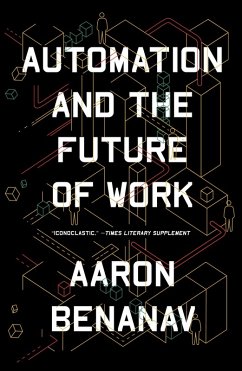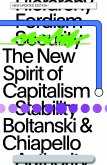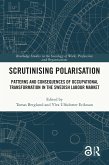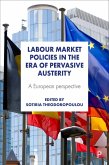Silicon Valley titans, politicians, techno-futurists and social critics have united in arguing that we are living on the cusp of an era of rapid technological automation, heralding the end of work as we know it. But does the much-discussed "rise of the robots" really explain the worsening jobs crisis?
In Automation and the Future of Work, Aaron Benanav uncovers the structural economic trends that will shape our working lives far into the future. What social movements, he asks, are required to propel us into post-scarcity, if technological innovation alone can't deliver it? In response to calls for a universal basic income that would maintain a growing army of redundant workers, he offers a counterproposal.
Hinweis: Dieser Artikel kann nur an eine deutsche Lieferadresse ausgeliefert werden.
In Automation and the Future of Work, Aaron Benanav uncovers the structural economic trends that will shape our working lives far into the future. What social movements, he asks, are required to propel us into post-scarcity, if technological innovation alone can't deliver it? In response to calls for a universal basic income that would maintain a growing army of redundant workers, he offers a counterproposal.
Dieser Download kann aus rechtlichen Gründen nur mit Rechnungsadresse in A, D ausgeliefert werden.
Hinweis: Dieser Artikel kann nur an eine deutsche Lieferadresse ausgeliefert werden.









